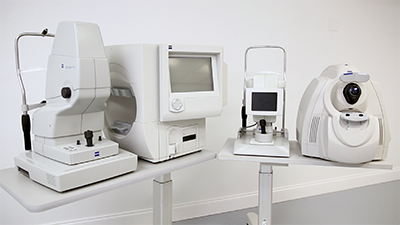Whether you’re opening a new office, expanding your practices, switching to new technology, or replacing a broken unit, purchasing equipment is a difficult task. Different hospitals need to contacts various Medical equipment supplieron daily basis for advice.
- When should a studio owner consider upgrading or adding equipment?
Practice should consider swapping devices if a device periodically fails or the workflow becomes slow. For example, if the exercise has an old fundus camera with intermittent problems and the patient has to reschedule it due to the problem, they will immediately lose revenue. Even in the case of buying ENT stuff, it will be convenient to know which best supplier to buy from is and Where to buy otoscope at a good price?
It is also important to update or add new equipment so that the practice can keep up with emerging technologies. Patient loyalty is usually higher when they see it as a top-notch medical practice rather than a place to get glasses and contact lenses.
- What is the impact of adding new equipment to the practice?
Buying new or reused equipment has a significant impact on all the right causes. For example, making non-rechargeable devices like an automatic refractor and an automatic lensmeter to see more patients on a given day would make a positive difference for your business. It would bring more revenue to the practice by increasing the number of patients seen and significantly increasing patient flow, thereby reducing stress on staff.
Adding reimbursable equipment will have the most profound effects on your practice. This type of purchase not only increases the profitability of the rebate but can also increase patient loyalty. If they see it as a high-tech medical office and trust your professional opinion, they are more likely to return.
- What should you consider when deciding whether to buy new or reused equipment?
The rising cost of new capital goods and lower commissions will lead you to decide to buy the old ones. If a studio wants to release the latest unit, they will most likely have to buy a new one. However, if you are ready to buy a unit that is one or two years old, you can save a lot by using a used unit.
- What should you look for in an equipment supplier?
The most important thing is to buy from someone who is trustworthy and understands your trading practice. Their vendors must more like consultants. Those who will be happy to discuss your needs and budget and then suggest the best solution for you, be it your new or refurbished equipment. This flexibility is one of the benefits of working with a dealer who sells new and reconditioned equipment.
It is important to consider whether the seller offers a warranty when purchasing used equipment. Also, make sure your supplier has a service department that can provide full service to your equipment and support your warranty. Without it, there are no unnecessary guarantees and if your equipment fails, you cannot go anywhere.
- Are there other tips for buying the equipment?
If you are considering purchasing reusable equipment, purchase ONLY from a company that has technical support and can reconfirm the equipment. Some many independent companies and agents sell reusable equipment but have no service or warranty.
Also, consider financing the purchase of your device. A monthly payment plan can ease the stress of high costs and having appliances. Avoid that run out paid for life. Ask your provider who they are financial partners because you will often find lower interesNew Medical Equipment Vs Used One:t rates.

